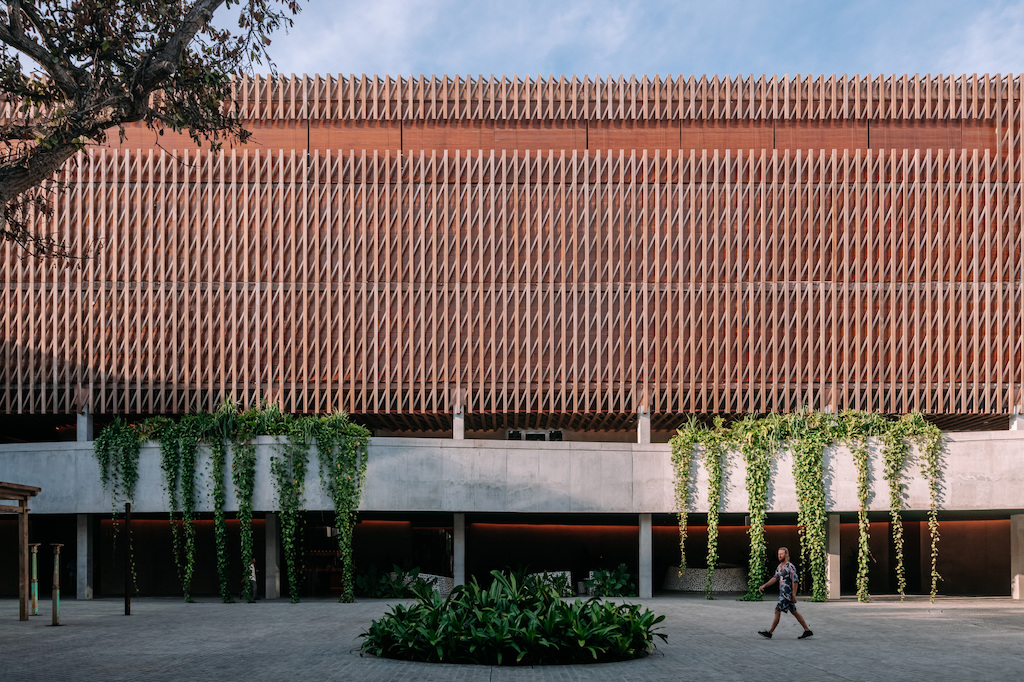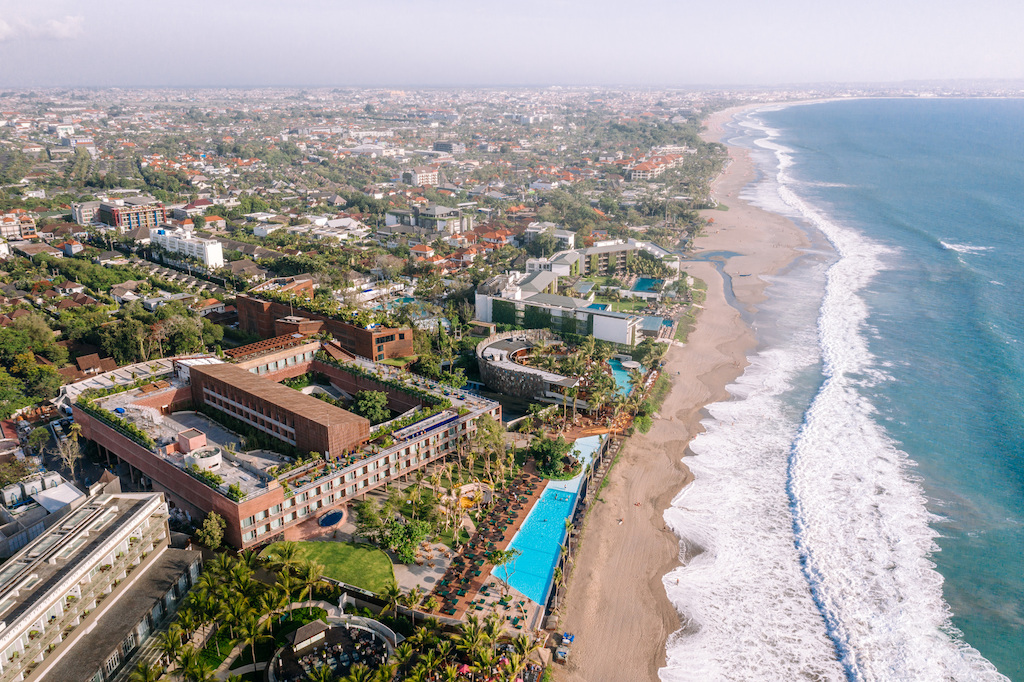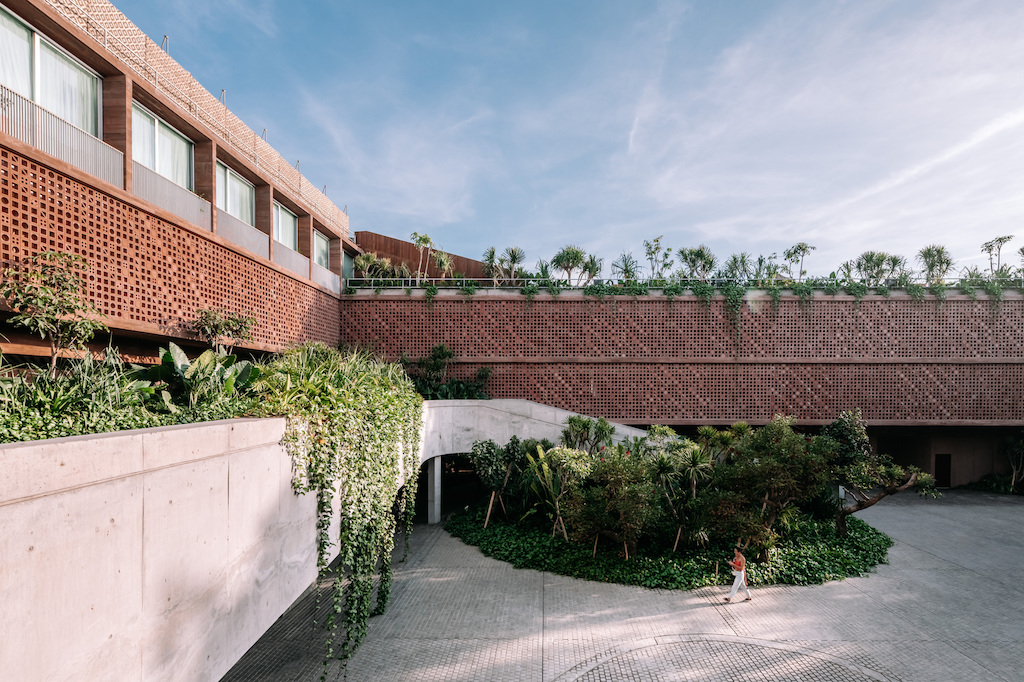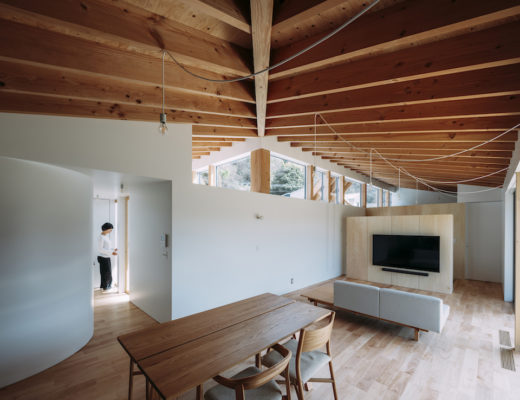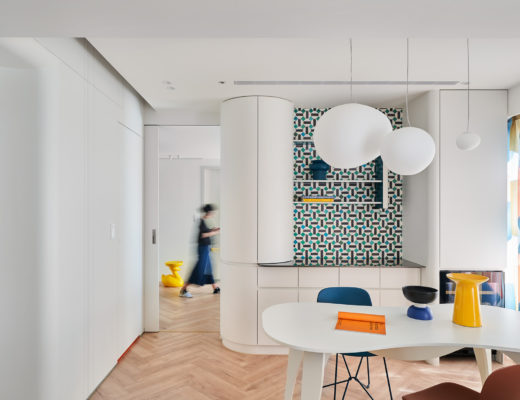Like most beach destinations, Bali‘s hotels and resorts too emphasise luxury experiences that are far-removed from local communities. The latest Desa Potato Head Bali by Office for Metropolitan Architecture (OMA) aims to change this approach. Located on one of the last remaining unoccupied beachfront sites in Seminyak, the Potato Head Studios challenges the typical resort typology – by abandoning the notion of “exclusivity” and reconsidering the resort as a part of the local community.
Among the three buildings of Desa Potato Head (desa means village in Bahasa), the project, led by David Gianotten and Ken Fung, comprises a beach club and two hotels. It offers private guestrooms and facilities, and public spaces. A floating ring lifted by pilotis accommodates the guestrooms and other functions, including an exhibition space and a large sunset bar. This configuration has resulted in a cultural ground plane, or an open platform, which leads to the beach. The open platform is the centerpiece of the resort — a flexible stage for a range of programmes such as festival celebrations, cultural events, and day-to-day leisure activities that welcomes everyone to experience Balinese culture.
The rooftop — conceived as a public space and a sculptural park — is accessible through a public route that winds up the floating complex, which connects amenity spaces including restaurants, pools, and spas.
Designed with the Indonesian context in mind, the open platform at the ground level and a private garden on the second floor evoke both the raised courtyards in Indonesia, and traditional Balinese courtyards found at the ground level.
Built using traditional materials and craftsmanship, Potato Head Studios Hotel engages the local community as much as it provides a window into the Balinese culture to the visitors.
Photos: Kevin Mak / OMA

